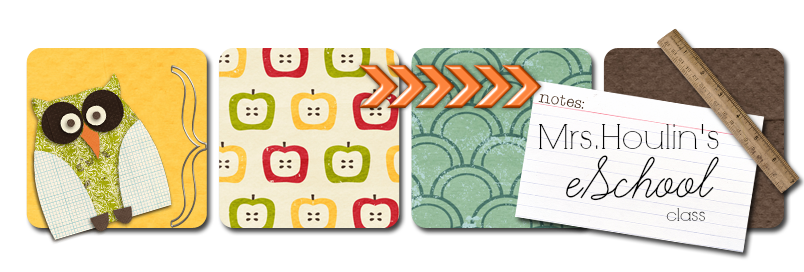Clues to Dyslexia
Preschool Years
- Trouble
learning common nursery Rhymes such as “Jack and Jill”
- A lack
of appreciation of rhymes
- Mispronounce
words; persistent baby talk
- Difficulty
in learning (and remembering) names of letters
- Failure
to know the letters in his own name
Kindergarten and First Grade
- Failure
to understand that word come apart; for example, that batboy can be pulled
apart into bat and boy, and , later on, that the word bat can be broken
down still further and sounded out as:
“b” “aaaa” “t”
- Inability
to learn to associate letters with sounds, such as being unable to connect
the letter b with the “b” sound
- Reading
errors that show no connection to the sounds of the letters; for example,
the word big is read as goat
- The
inability to read common one-syllable words or to sound out even the
simplest of words, such as mat, cat, hop, nap
- Complaints
about how hard reading is, or running and hiding when it is time to read
- A
history of reading problems in parents or siblings
In addition to the problems of speaking and reading, you
should be looking for these indications of strengths in higher-level thinking
processes:
- Curiosity
- A
great imagination
- The
ability to figure things out
- Eager
embrace of new ideas
- Getting
the gist of things
- A good
understanding of new concepts
- Surprising
maturity
- A
large vocabulary for age group
- Enjoyment
in solving puzzles
- Talent
at building models
- Excellent
comprehension of stories read or told to him
Second Grade On
Problems in Speaking
- Mispronunciation
of long, unfamiliar, or complicated words; the fracturing of words-leaving
out parts of words or confusing the order of parts of words; for example,
aluminum becomes amulium
- Speech
that is not fluent-pausing or hesitating often when speaking, lots of um’s
during speech, no glibness
- The
use of imprecise language, such as vague references to stuff or things
instead of the proper name of an object
- Not
being able to find the exact word; such as confusing words that sound
alike: saying tornado instead of
volcano; substituting lotion for ocean, or humanity for humidity
- The
need to summon an oral response or the inability to come up with a verbal
response quickly when questioned
- Difficulty
in remembering isolated pieces of verbal information (rote memory)-trouble
remembering dates, names, telephone numbers, random lists
Problems in Reading
- Very
slow progress in acquiring reading skills
- The
lack of strategy to read new words
- Trouble
reading unknown (new, unfamiliar) words that must be sounded out; making
wild stabs or guesses at reading a word; failure to systematically sound
out words
- The
inability to read small “function” words such as that, an in
- Stumbling
on reading multisyllable words, or failure to come close to sounding out
the full word
- Omitting
parts of words when reading; the failure to decode parts within a word; as
if someone had chewed a hole in the middle of the word, such as conible
for convertible
- A
terrific fear of reading out loud; the avoidance of oral reading
- Oral
reading filled with substitutions, omissions, and mispronunciation
- Oral
reading that is choppy and labored, not smooth or fluent
- Oral
reading that lack inflection and sounds like the reading of a foreign
language
- A
reliance on context to discern the meaning of what is read
- A
better ability to understand words in context than to read isolated words
- Disproportionately
poor performance on multiple choice tests
- The
inability to finish tests on time
- The
substitution of words with the same meaning for words in the text he can’t
pronounce, such as car for automobile
- Disastrous
spelling, with words not resembling true spelling; some spellings may be
missed by spell check
- Trouble
reading mathematics word problems
- Reading
that is slow and tiring
- Homework
that never seems to end, or with parents often recruited as readers
- Messy
handwriting despite what may be an excellent facility at word
processing-nimble fingers
- Extreme
difficulty learning a foreign language
- A lack
of enjoyment in reading, and the avoidance of reading books or even a
sentence
- The
avoidance of reading for pleasure, which seems too exhausting
- Reading
whose accuracy improves over time, although it continues to lack fluency
and is laborious
- Lowered
self-esteem, with pain that is not always visible to others
- A
history of reading, spelling, and foreign language problems in family
members
In addition to signs of phonological weakness, there are
signs of strengths in higher-level thinking processes:
- Excellent
thinking skills: conceptualization, reasoning, imagination, abstraction
- Learning
that is accomplished through meaning rather than rote memorization
- Ability
to get the big picture
- A high
level of understanding of what is read to him
- The
ability to read and to understand at a high level overlearned (that is,
highly practiced) words in a special
area of interest; for example, if
his hobby is restoring cars, he may be able to read auto mechanics
magazines
- Improvement
as an area of interest becomes more specialized and focused, when he
develops a miniature vocabulary that he can read
- A
surprisingly sophisticated listening vocabulary
- Excellence
in areas not dependent on reading, such as math, computers, and visual
arts, or excellence in more conceptual (verses factoid-driven) subjects
such as philosophy, biology, social studies, neuroscience, and creative
writing
(Overcoming Dyslexia, 2003)
